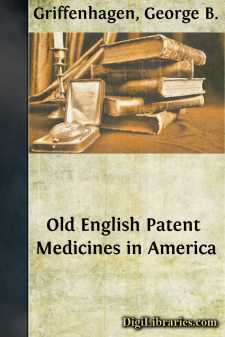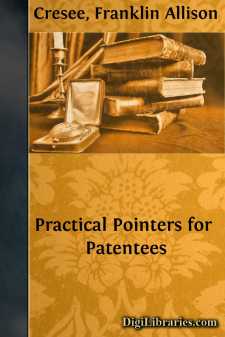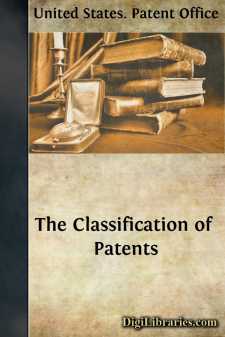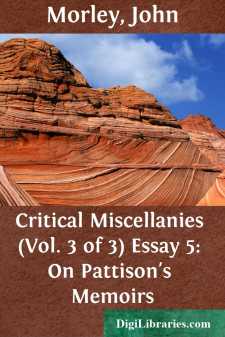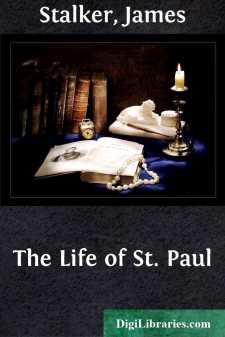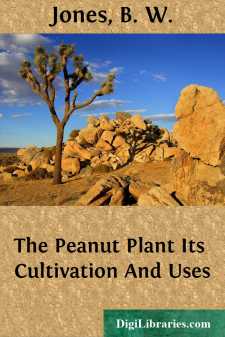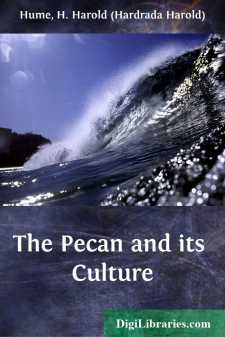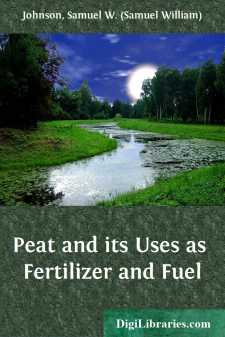Non-Classifiable
- Non-Classifiable 1768
Non-Classifiable Books
Sort by:
In 1824 there issued from the press in Philadelphia a 12-page pamphlet bearing the title, Formulae for the preparation of eight patent medicines, adopted by the Philadelphia College of Pharmacy. The College was the first professional pharmaceutical organization established in America, having been founded in 1821, and this small publication was its first venture of any general importance. Viewed from...
more...
CHAPTER I DEMAND FOR INVENTIONS OF MERIT That there is a demand for inventions of merit which can be readily disposed of at a reasonable profit to the inventor, there can be no doubt. There perhaps never was a time in the history of our country when the demand for meritorious inventions was so great as the present. The conveniences of mankind, in all his varied vocations and callings, require continual...
more...
The facilitation and abbreviation of mental labor is at the bottom of all mental progress. The reasoning faculties of Newton were not different in qualitative character from those of a ploughman; the difference lay in the extent to which they were exerted and the number of facts which could be treated. Every thinking being generalizes more or less, but it is the depth and extent of his generalizations...
more...
by:
John Morley
ON PATTISON'S MEMOIRS. To reckon the subject of this volume among leading minds who have stamped a deep influence on our generation, is not possible even to the friendliest partiality. That was not his position, and nobody could be less likely than he would himself have been to claim it. Pattison started no new problem. His name is associated with no fertile speculation, and with no work of the...
more...
JOY IN SERVICE. This is one of the sentences that dropped from the lips of Christ, which let us into his personal spiritual life and in some measure lay bare his mind. To be permitted thus to share his confidence is one of our greatest privileges. Viewing him from a distance, we may admire his character; viewing him in history, we may confess his incomparable power; viewing him when convincing us of...
more...
by:
James Stalker
FOREWORD By Wilbert W. White, D.D. When asked to write a foreword to Dr. Stalker's "Life of St. Paul," I thought of two things: first the impression which I had received from a sermon that I heard Dr. Stalker preach a good many years ago in his own pulpit in Glasgow, Scotland, and secondly, the honor conferred in this privilege of writing a foreword to one of Dr. Stalker's books. I...
more...
by:
Henry Van Dyke
eace is one of the great words of the Holy Scriptures. It is woven through the Old Testament and the New like a golden thread. It inheres and abides in the character of God,— "The central peace subsisting at the heart Of endless agitation." It is the deepest and most universal desire of man, whose prayer in all ages has been, "Grant us Thy Peace, O Lord." It is...
more...
by:
B. W. Jones
CHAPTER I. Origin.—The native country of the Peanut (Arachis hypogæa) is not definitely ascertained. Like many other extensively cultivated plants, it has not been found in a truly wild state. Some botanists regard the plant as a native of Africa, and brought to the New World soon after its discovery. Sloane, in his history of Jamaica, states that peanuts formed a part of the provisions taken by the...
more...
CHAPTER I. COMMERCIAL AND ORNAMENTAL IMPORTANCE OF THE PECAN. In all-around excellence, the pecan is equalled by none of the native American nut-bearing trees and certainly it is surpassed by no exotic species. It stands in the list of nut trees with but few equals and no superiors. With this fact known and admitted by all, it seems reasonable to suppose that the pecan will be grown and cultivated much...
more...
INTRODUCTION. In the years 1857 and 1858, the writer, in the capacity of Chemist to the State Agricultural Society of Connecticut, was commissioned to make investigations into the agricultural uses of the deposits of peat or swamp muck which are abundant in this State; and, in 1858, he submitted a Report to Henry A. Dyer, Esq., Corresponding Secretary of the Society, embodying his conclusions. In the...
more...


